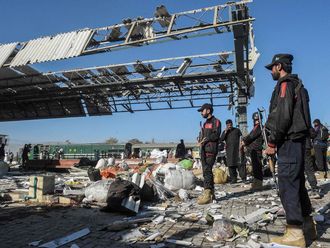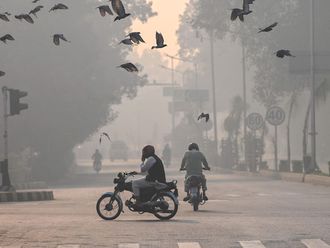Islamabad: Afghanistan and Pakistan agreed yesterday to coordinate their efforts against drug traffickers, officials said, a sign of growing ties between the two neighbours fighting Islamist insurgencies on their borders.
The agreement was clinched at an annual meeting of the Triangular Initiative facilitated by the UN Office on Drugs and Crime (UNODC) in Islamabad. Iran was also a part of the meeting.
"Now Pakistan and Afghanistan through this meeting have also agreed that our law enforcement forces' coordinated operations will commence soon," Pakistan's Secretary of Narcotics Control, Tarek Khosa, told reporters.
Relations between Kabul and Islamabad have been frosty since the removal of the Taliban in 2001, but have recently been thawing, with an agreement on a transit trade last summer.
Both countries had been working with Iran separately on counter-narcotics, but this is the first time the two have made a public commitment to work together.
"It will definitely make a difference because earlier the key countries were not cooperating with each other. Now you'll see improvements," said Nadeem Rahman, an adviser to UNODC.
Afghanistan, Pakistan and Iran also agreed to set up liaison offices at their borders and activate a joint anti-narcotics planning office in Tehran, Khosa said.
Afghanistan produces 90 per cent of the world's opium, most of which is processed to make highly addictive heroin and sent abroad via Iran and Pakistan. In 2009, Afghanistan produced 6,900 tonnes of opium, far more than the 5,000 tonnes the world's addicts consume.
The crop is worth some $3 billion (Dh11.03 billion) a year to the Afghan economy and locks the country into a vicious circle where drug money helps fund the Taliban insurgency and fuels official corruption.
According to UNODC, the Taliban received about $150 million in funding from the opium trade last year. The Taliban receives funds from both farmers and drug traffickers who smuggle opium across Afghanistan's numerous borders.
Afghanistan's opium output has risen every year since the toppling of the Taliban, despite millions of dollars spent on eradication efforts.












